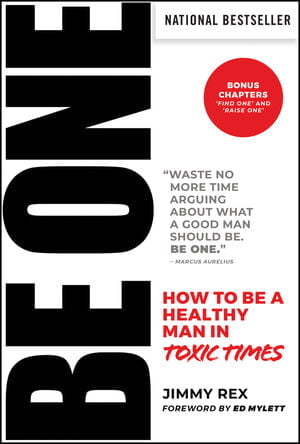
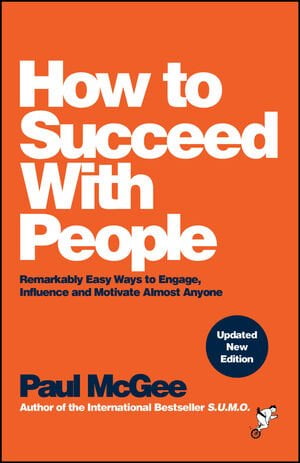
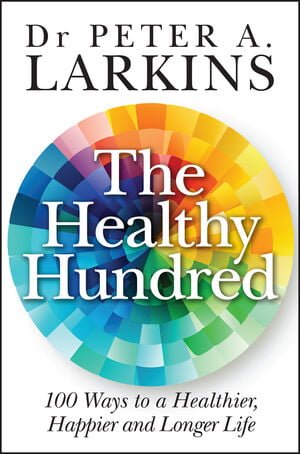
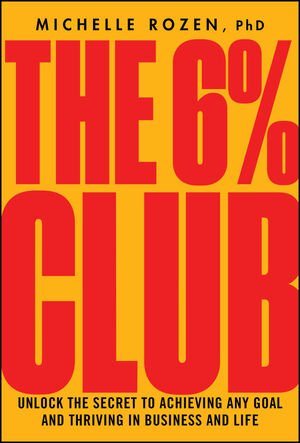
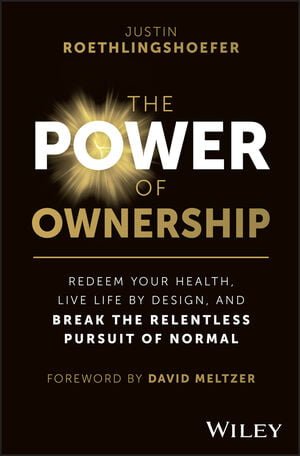
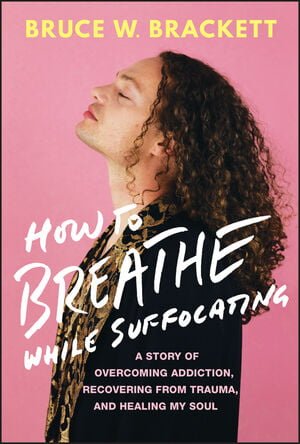
These days, stress is never too far around the corner, given our fast-paced lives and lack of balance. Therefore, it is no surprise that we have dedicated an entire month to thinking about it, as April is Stress Awareness Month. This observance offers us the perfect opportunity to have open conversations about the impact of stress and to share any helpful tips or tricks for combating it with our loved ones. Consequently, we spoke with a number of expert authors about their biggest takeaways regarding stress this year.
Read: Best books for International Stress Awareness Week
This year’s theme, #LittleByLittle, highlights the transformative impact of consistent, small positive actions on overall well-being. The Stress Management Society states that it wants to emphasise how even the smallest steps taken each day toward self-care and stress reduction can yield significant improvements in mental health over time.
The organisation uses an analogy where stress management is compared to building a house—initially, placing a single brick might not appear impactful. You could begin with small steps, such as taking deep breaths in stressful moments or noting something you’re thankful for every day.
Though these actions might seem minor, they are crucial to the foundation of your mental well-being. As you consistently add more bricks, the structure of your mental health begins to solidify. Each brick symbolises a deliberate decision to enhance and fortify your mental health and resilience. Collectively, they contribute to greater strength and stability, equipping you to better withstand life’s challenges.
Over time, these small but steady efforts accumulate, culminating in a significant transformation.
Authors unveil key insights on stress management through small actions and positive mindset
Jimmy Rex, author of “BE ONE: How to Be a Healthy Man in Toxic Times” reflects on the importance of taking action to improve mental health. “A guiding quote in my life, and the inspiration for my new book ‘Be One’, is the Marcus Aurelius challenge, ‘Waste no more time arguing what a good man should be. Be one,'” says the We Are The They movement founder. He reiterates the necessity of small commitments like taking a morning walk or showing gratitude to others.
“You have to make the small commitments of change – taking a walk every morning, texting five people why you’re grateful for them, showing up even when you don’t want to – to build the proof that you’re capable and worthy. But don’t try to do it alone! Changing habits and breaking free of our limiting stories is impossible without accountability and support,” Rex adds.
These can be summarised into three points:
- Take a stand
- Change your behaviours
- Surround yourself with a like-minded community that will remind you why doing the hard thing is the right thing.
At the same time, Paul McGee, author of the newly updated “How to Succeed with People“, discusses the impact of perception on stress. “It’s not the event that is stressful, it’s how we perceive it,” McGee explains. The international keynote speaker encourages people to ask themselves about the significance of their stressors in the grand scheme of things and focus on gratitude.
Read: International Week of Happiness at Work 2023: 6 books on workplace wellbeing
“Ask yourself every day ‘What am I thankful Four?’ – think about four specific things that have happened that day that you are thankful for. This can train the brain to be more aware of the good things in life and to pay less attention to the negative things,” he says. On top of this, the author recommends asking yourself the following two questions in order to gain perspective:
- Where is this on a scale of 1-10 where 10 = death or the end of the world?
- How important will this be in six months?
We were fortunate enough to speak to McGee about public speaking in episode 38 of the podcast.
“Developing personal strategies to deal with stress is a key component in learning to create emotional harmony in your life. These might include taking a step back to look at the bigger picture in any challenging situation, rather than becoming buried in the fine print of small issues or frustrations.”
Dr Peter Larkins, ‘The Healthy Hundred’ author
While Dr Peter Larkins, writer of “The Healthy Hundred“, provides a broader perspective on stress. “Most stress events are short term and their importance amplified by our inability to put them in overall life perspective,” notes the former Olympian. He suggests strategies like taking a step back to see the bigger picture, engaging in relaxed breathing techniques, or taking a brief walk to manage immediate stress.
Listen: How do we deal with burnout? – with The Stress Code author Richard Sutton
Additionally, Michelle Rozen, PhD, author of “The 6% Club“, introduces a practical tool for managing daily stresses. “The 0-10 Rule is a total game-changer,” states Rozen. Dr Rozen adds that because our culture “glorifies being busy”, burnout becomes inevitable. She advises focusing on the most critical tasks of the day and ignoring lesser priorities to prevent getting to that stage. “Focus your time and energy on what’s truly important, and let go of trying to do it all,” she states.
“We live in a culture that glorifies being busy and ‘doing it all’. So many people run around trying to do it all, accomplish very little and suffer burnout, exhaustion and stress as a result.”
Michelle Rozen, PhD, ‘The 6% Club’ author
Justin Roethlingshoefer, author of “The Power of Ownership“, discusses the importance of consistent behaviours over time. “We don’t rise to the level of our goals but rather fall to the level of our systems,” the performance coach argues. Roethlingshoefer highlights the value of small changes, which he sees as “the compound interest when it comes to our health.”
“Small changes compound, and habits are the compound interest when it comes to our health.”
Justin Roethlingshoefer, ‘The Power of Ownership’ author
Read: How do we stop worrying? – with The End of Stress author Don Joseph Goewey
Finally, Bruce W. Brackett, author of “How to Breathe While Suffocating“, advocates for positivity as a stress management strategy. “With everything that is happening around the globe, many of us feel stressed, overwhelmed, and even a bit lost,” says the motivational speaker. The mental health advocate and social media personality suggests focusing on gratitude to overcome stress, concluding, “When we put out positivity, we receive positivity.” He adds: “Once I start to focus on the positive thing that brings me gratitude, I notice that the scale begins to tip more to the positive side.”
These authors provide a range of techniques and insights that underscore the power of small, daily actions and the importance of mindset in managing and reducing stress. That being said, Stress Awareness Month is a time to re-evaluate our lives and spring clean our priorities for a healthier outlook.
We’ve covered a lot on stress management. For one, we spoke to The Stress Code author Richard Sutton, The End of Stress writer Don Joseph Goewey as well as Dr Nerina Ramlakhan on how it affects our nervous system.
This article contains affiliate links via Bookshop.org in which we may receive a small commission at no extra cost to you, in order to support local bookshops. We have not been commissioned to review books and services. This article, however, is in association with Wiley Publishers.